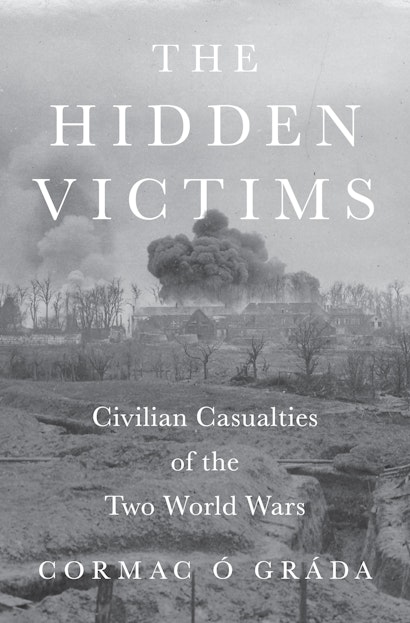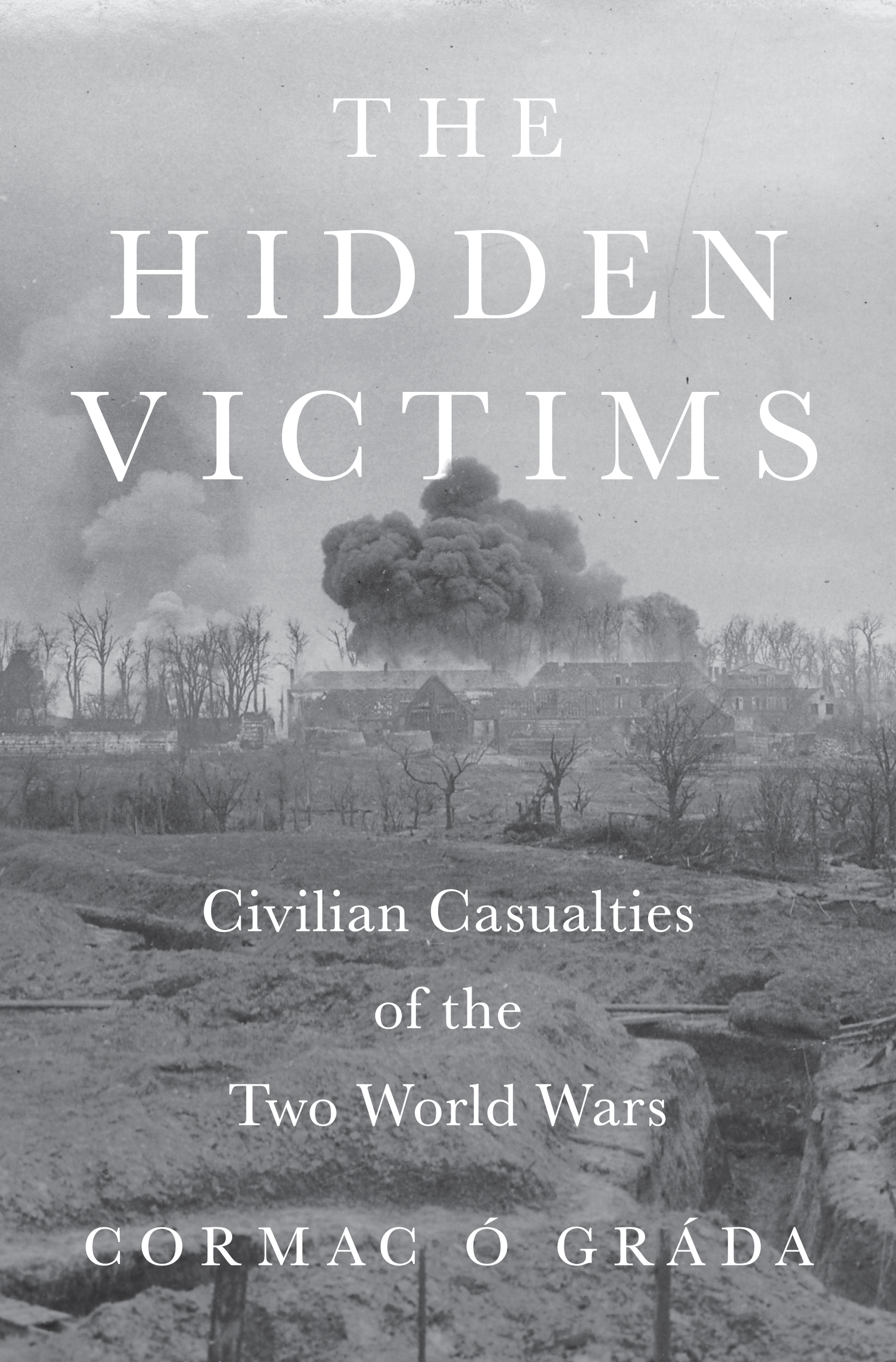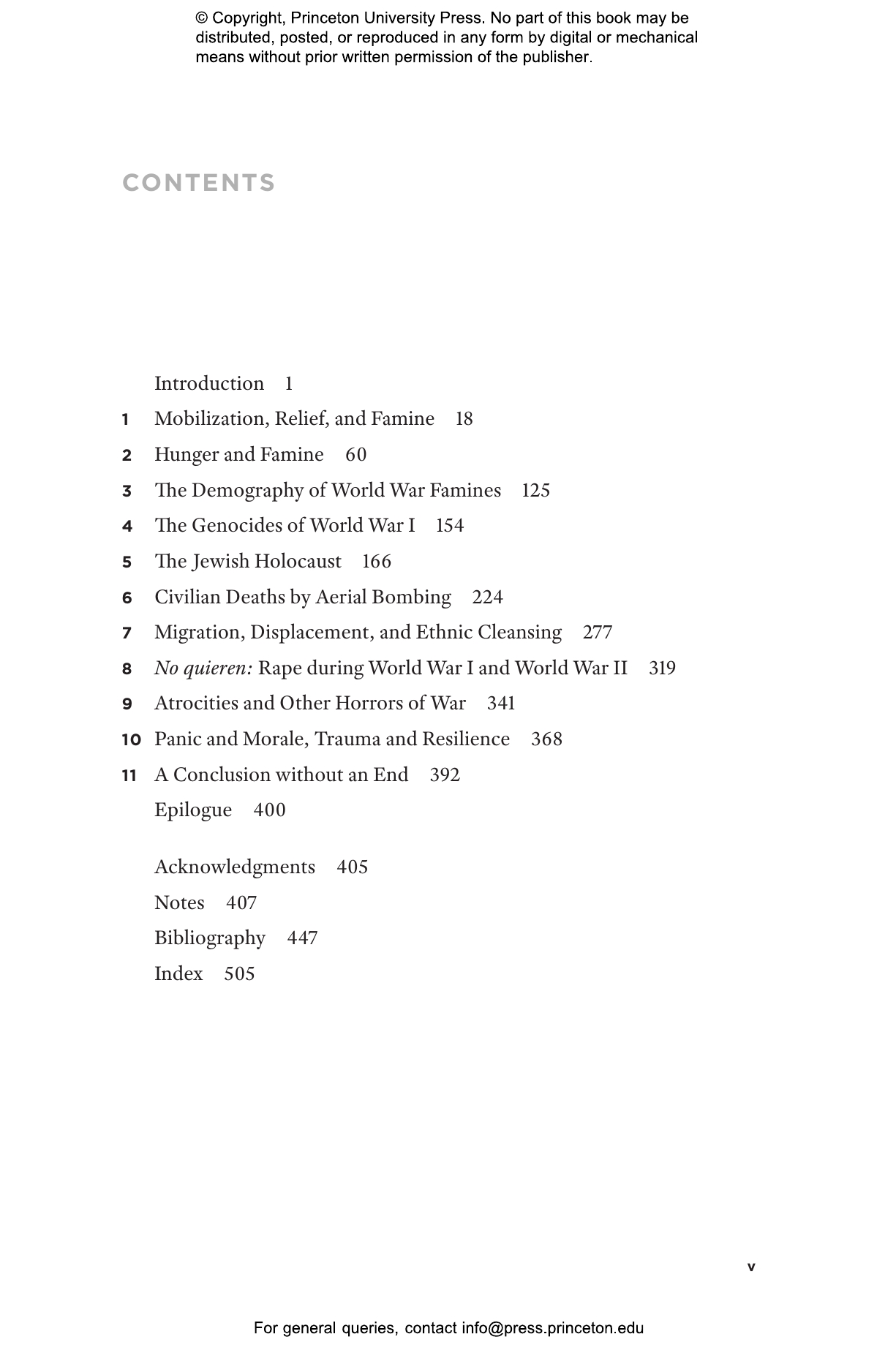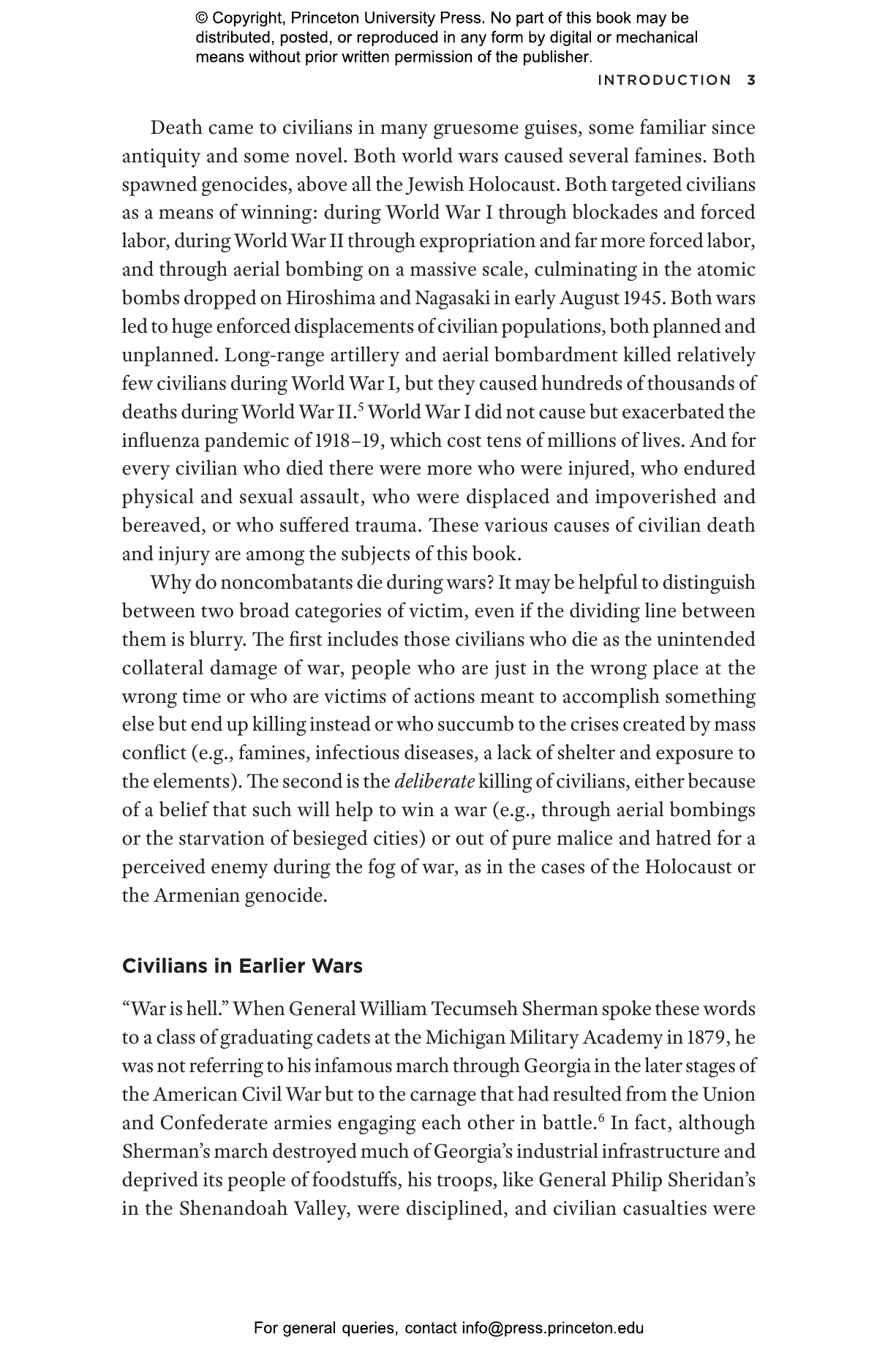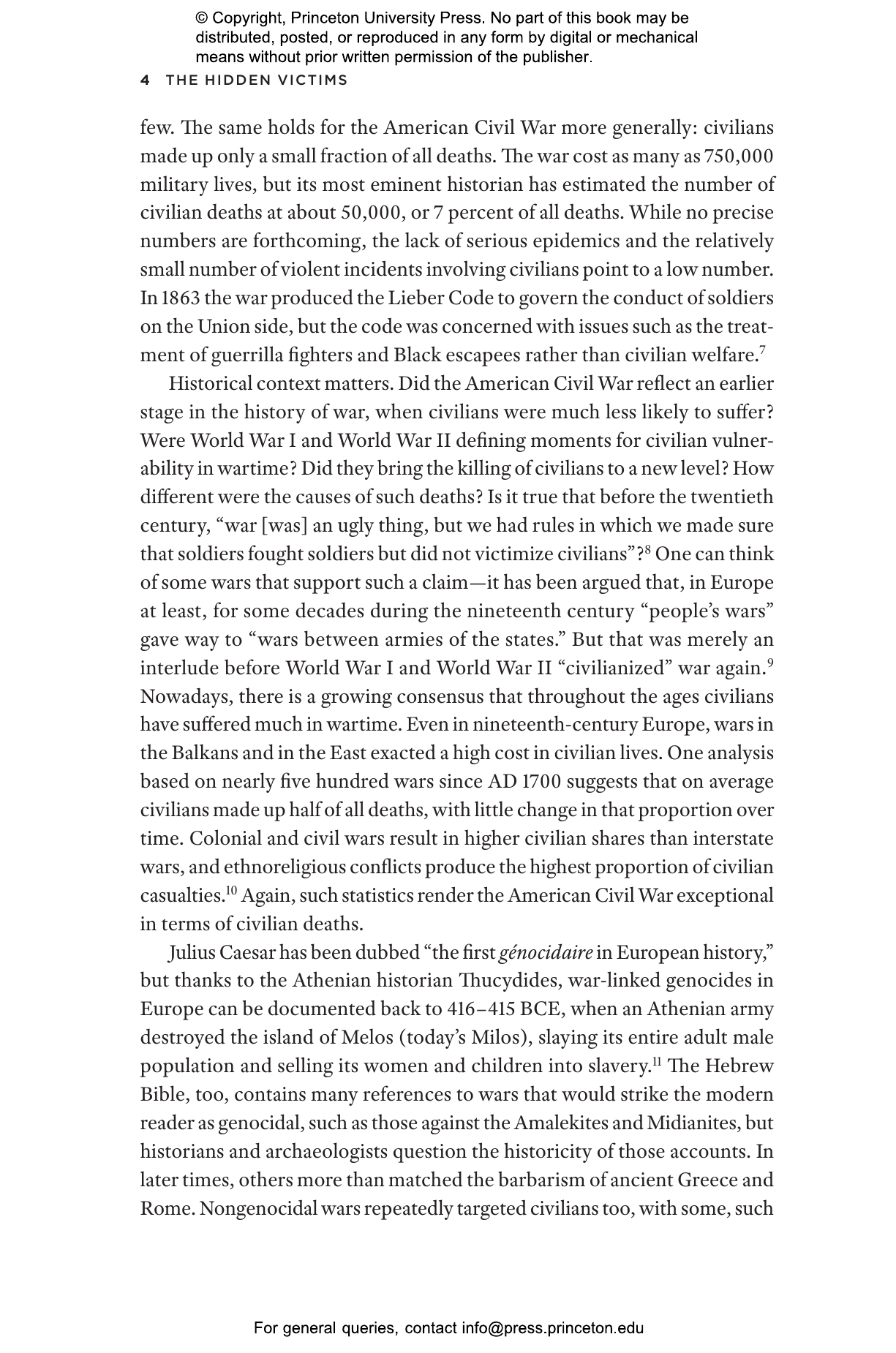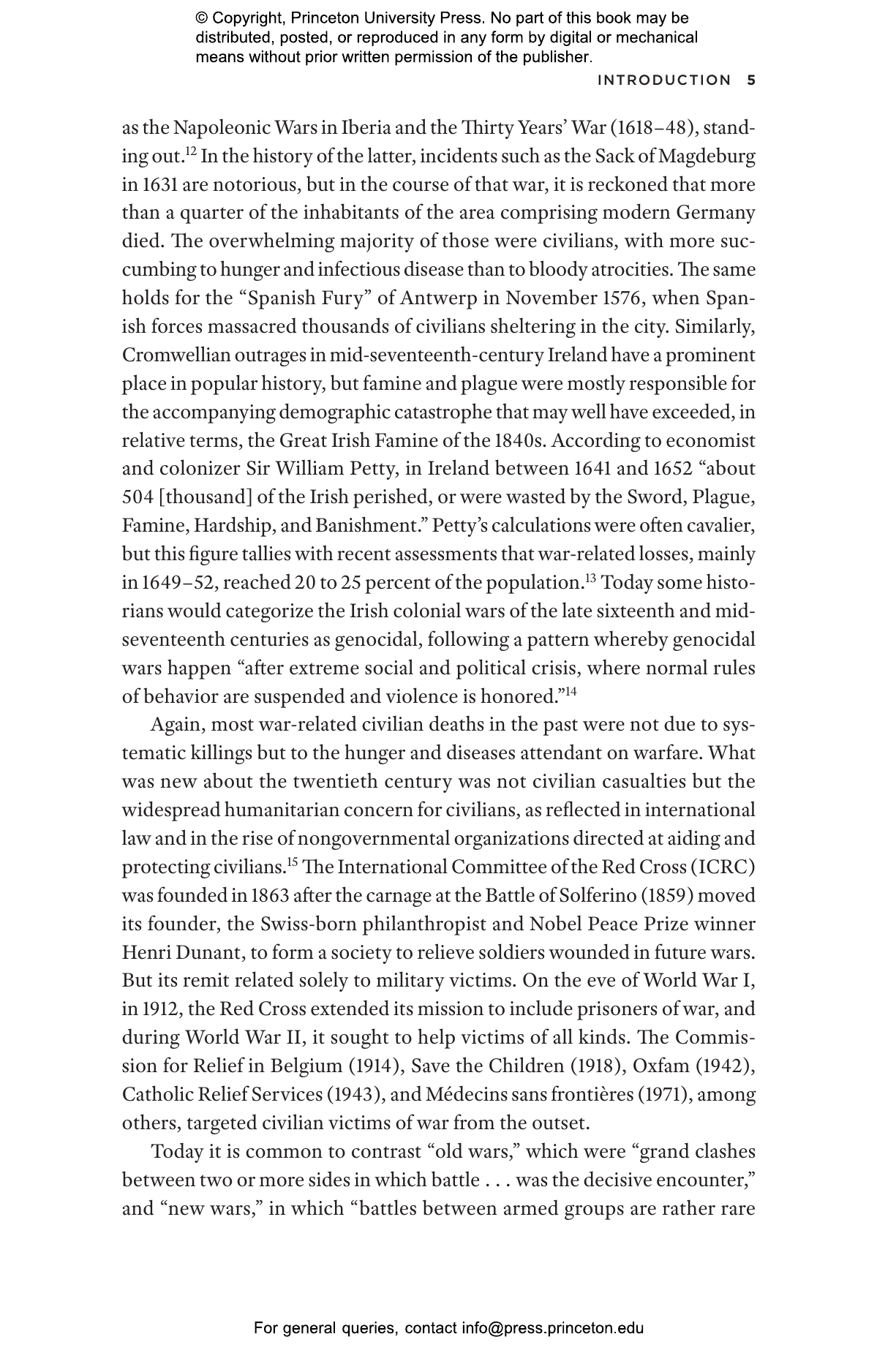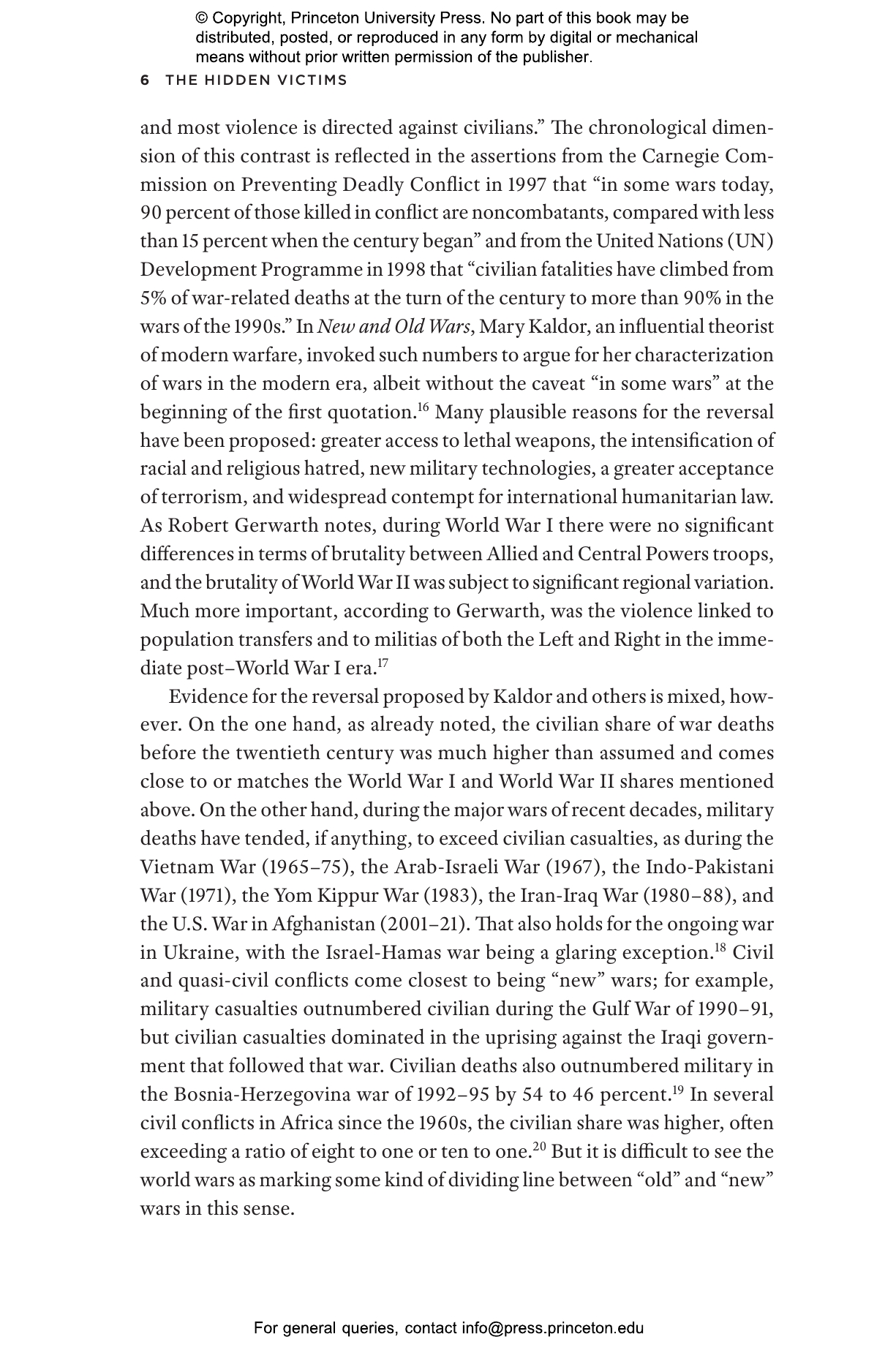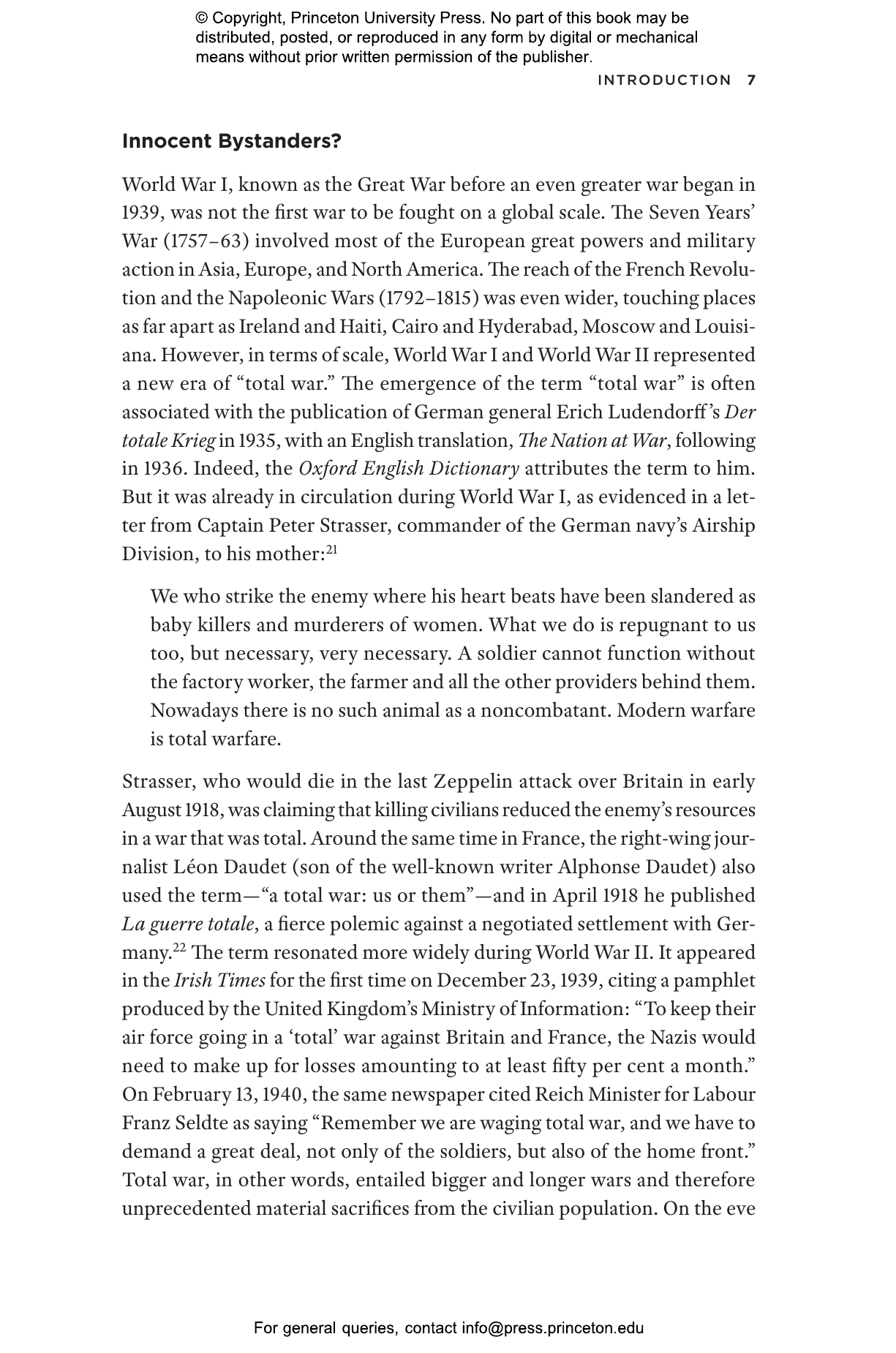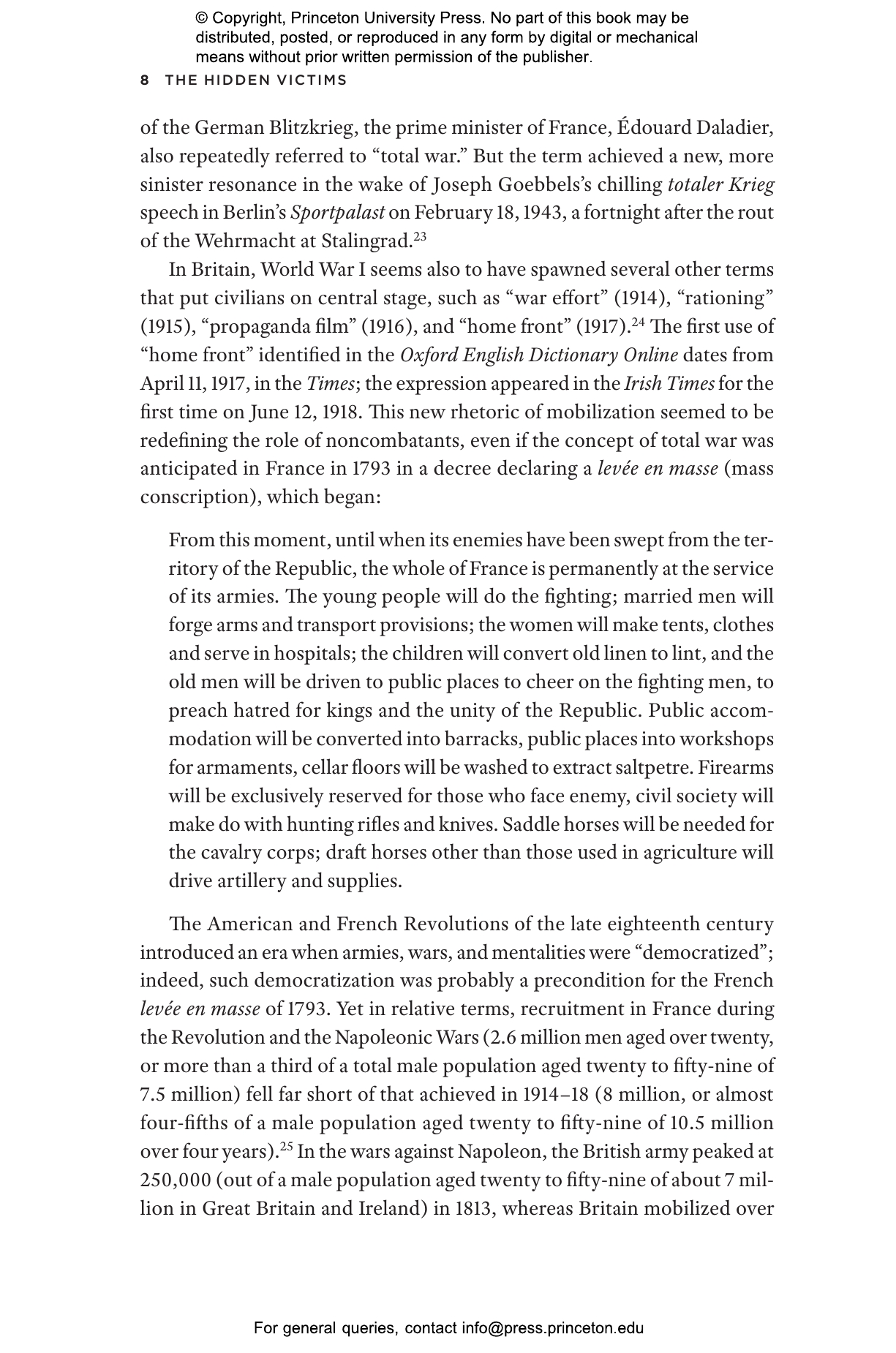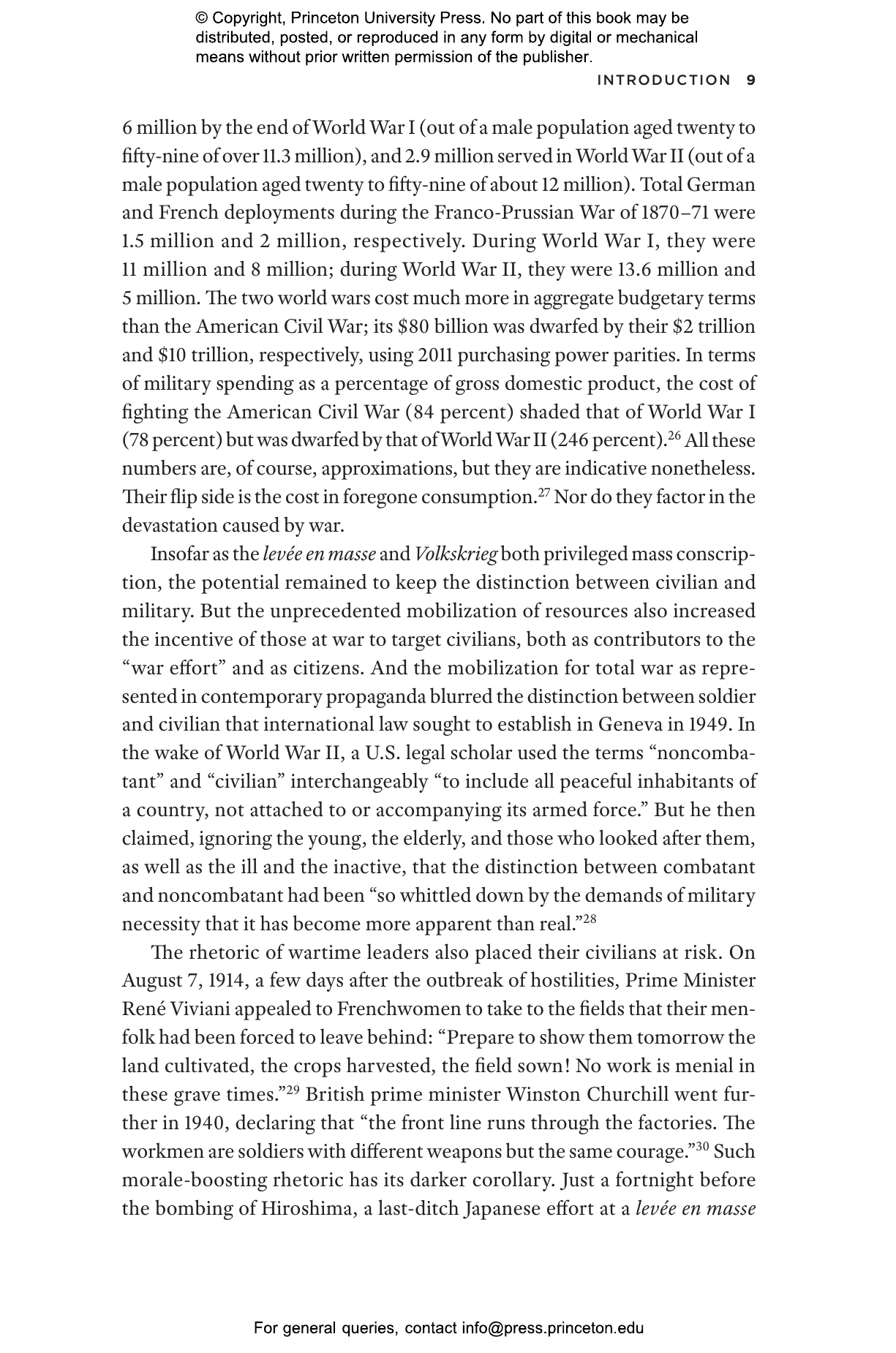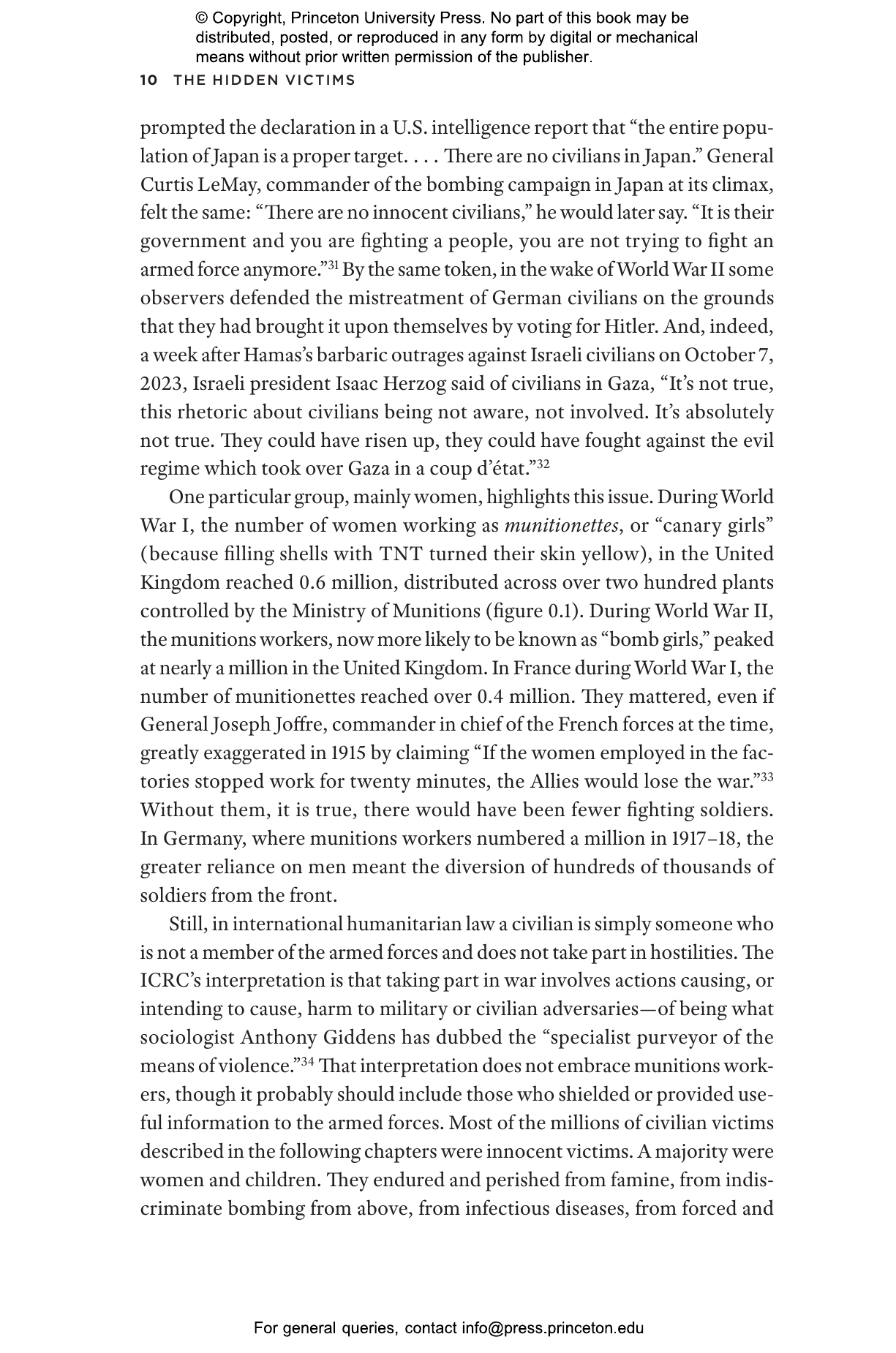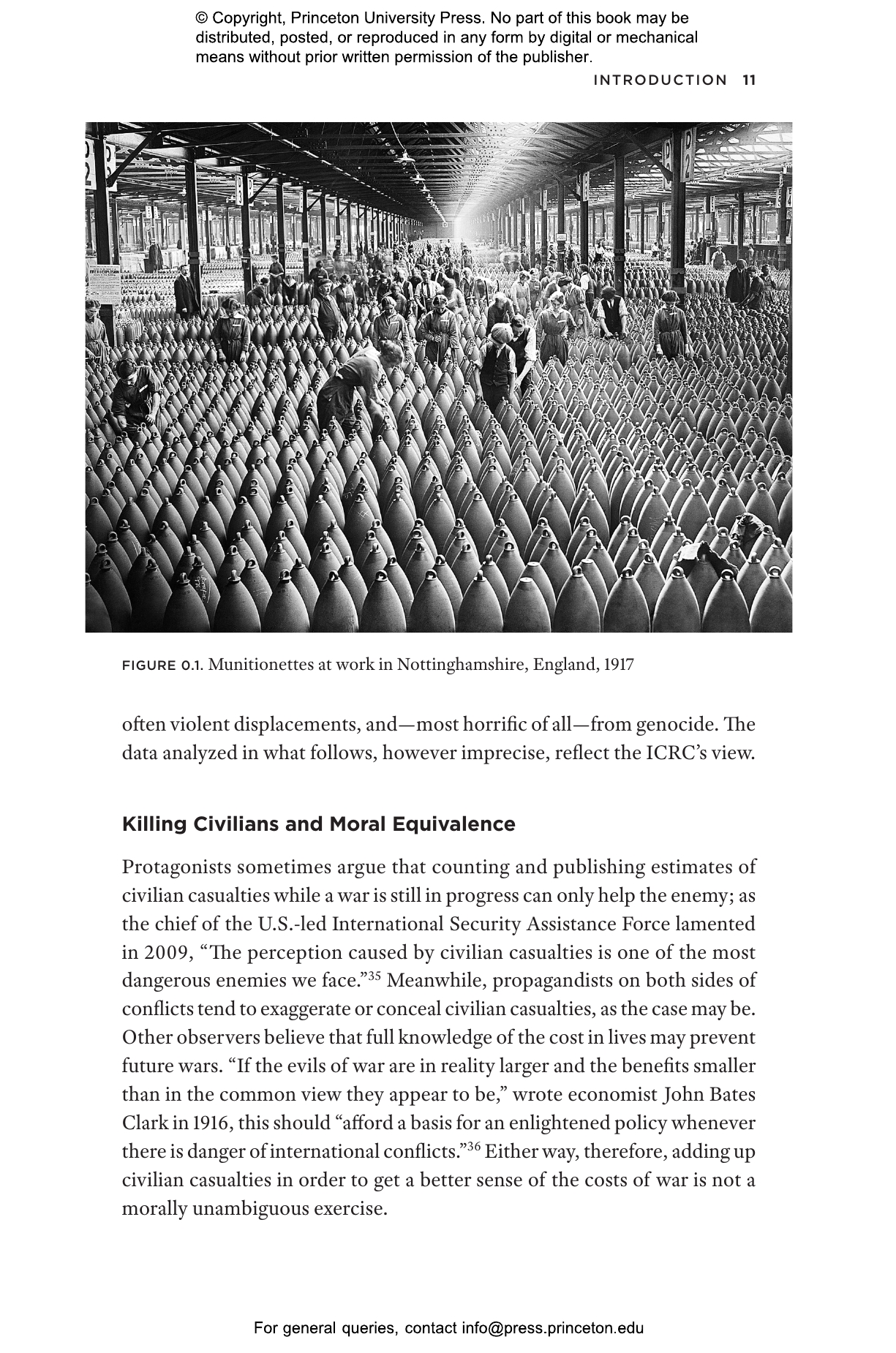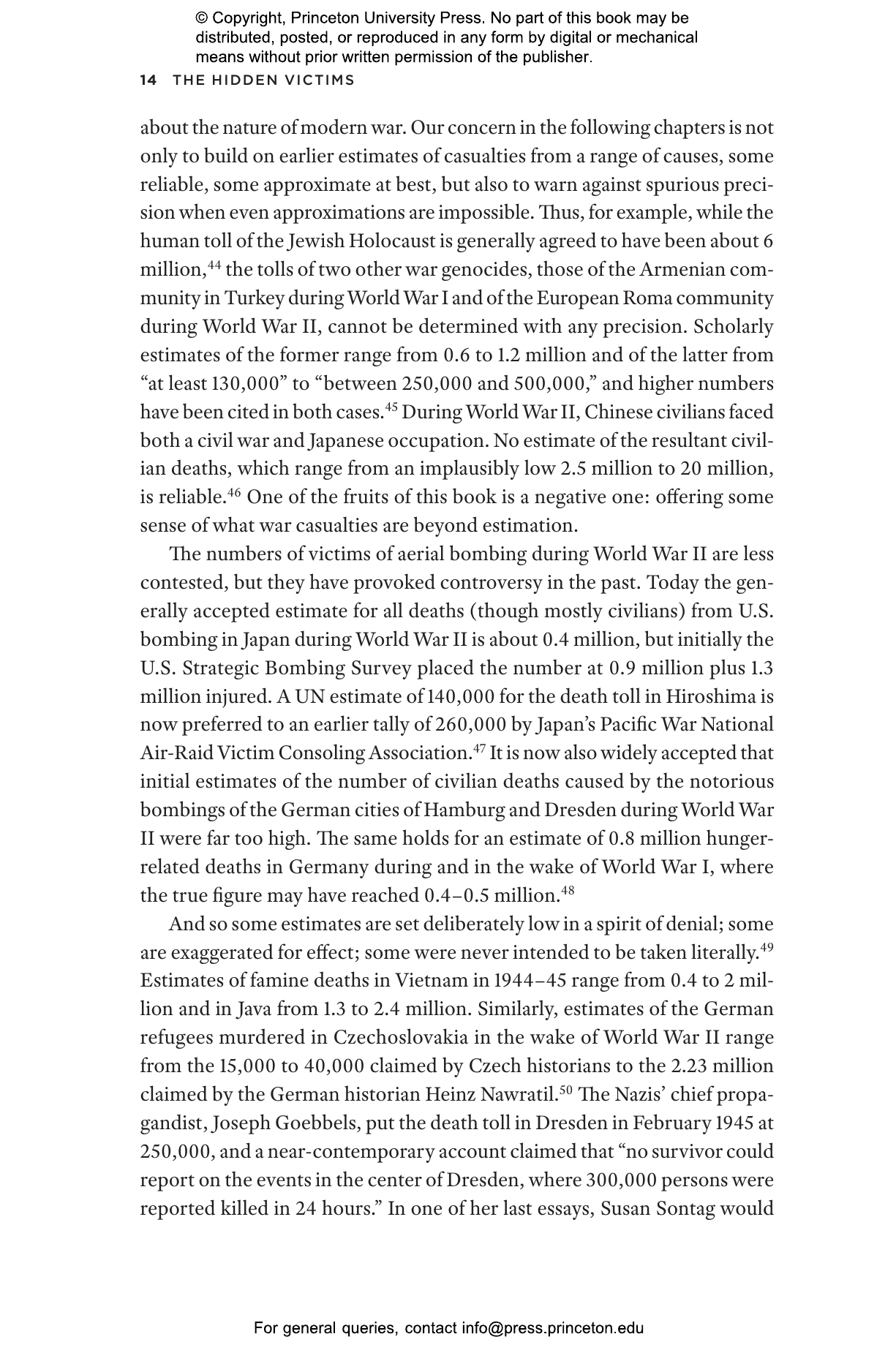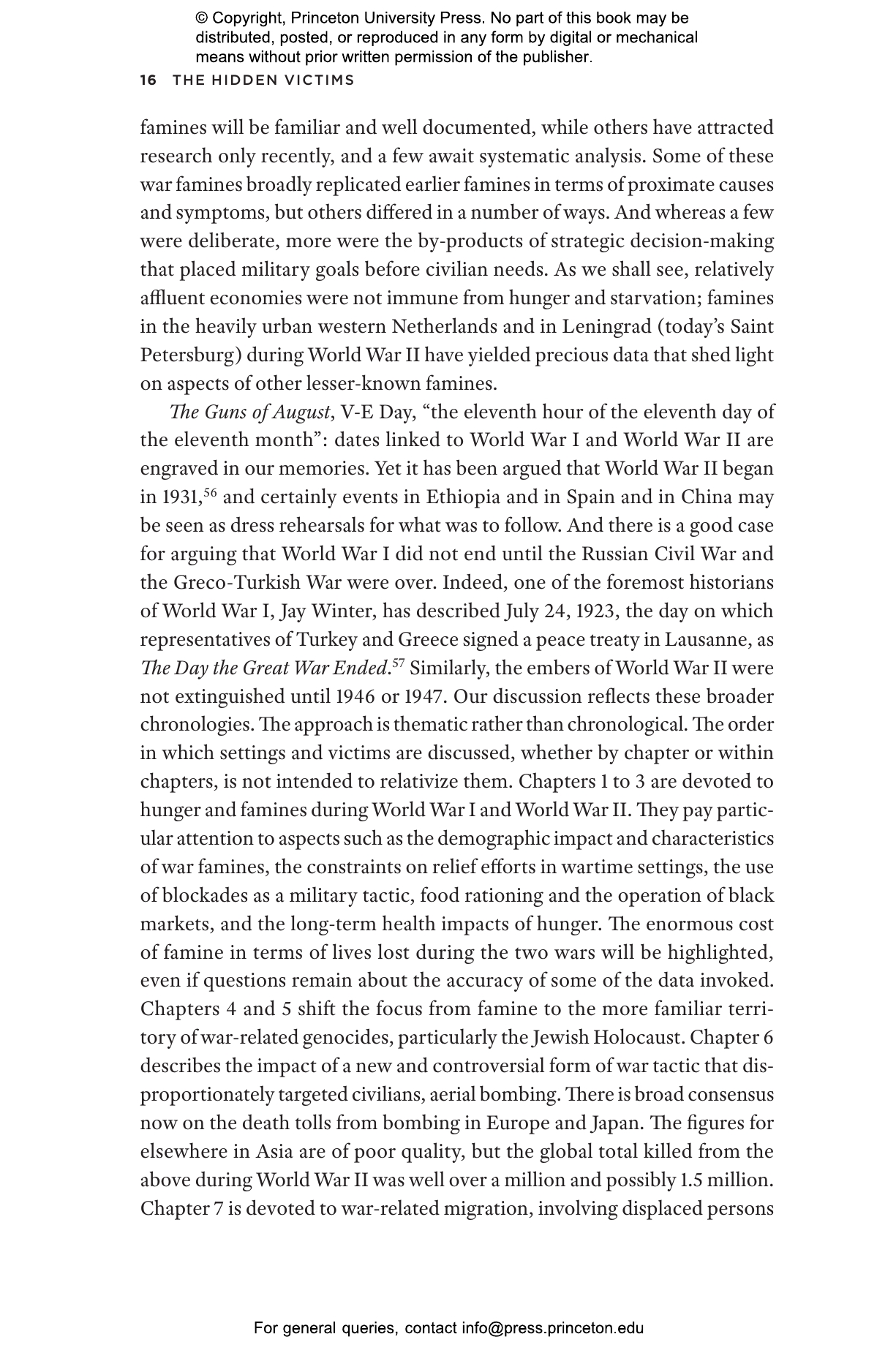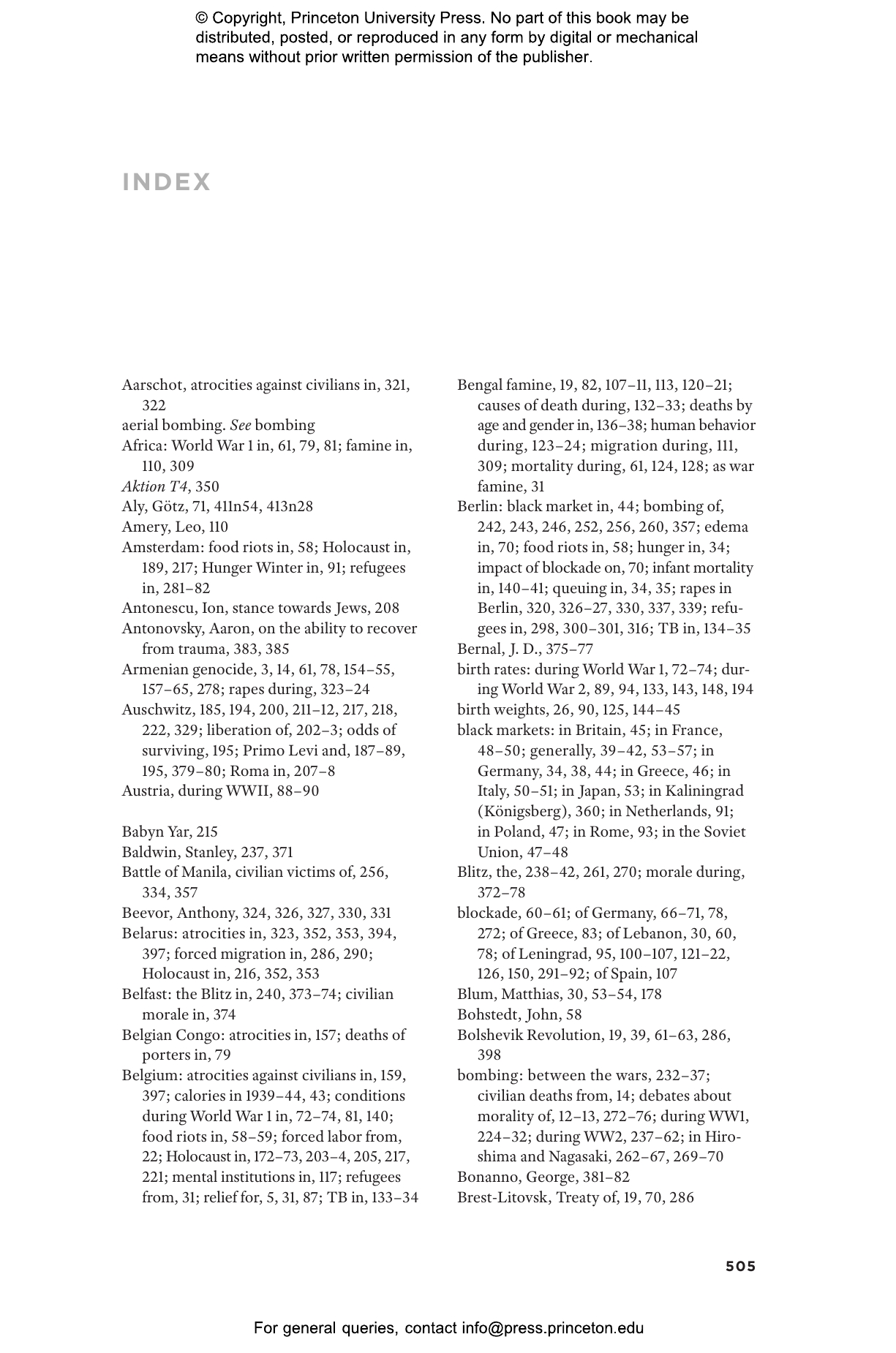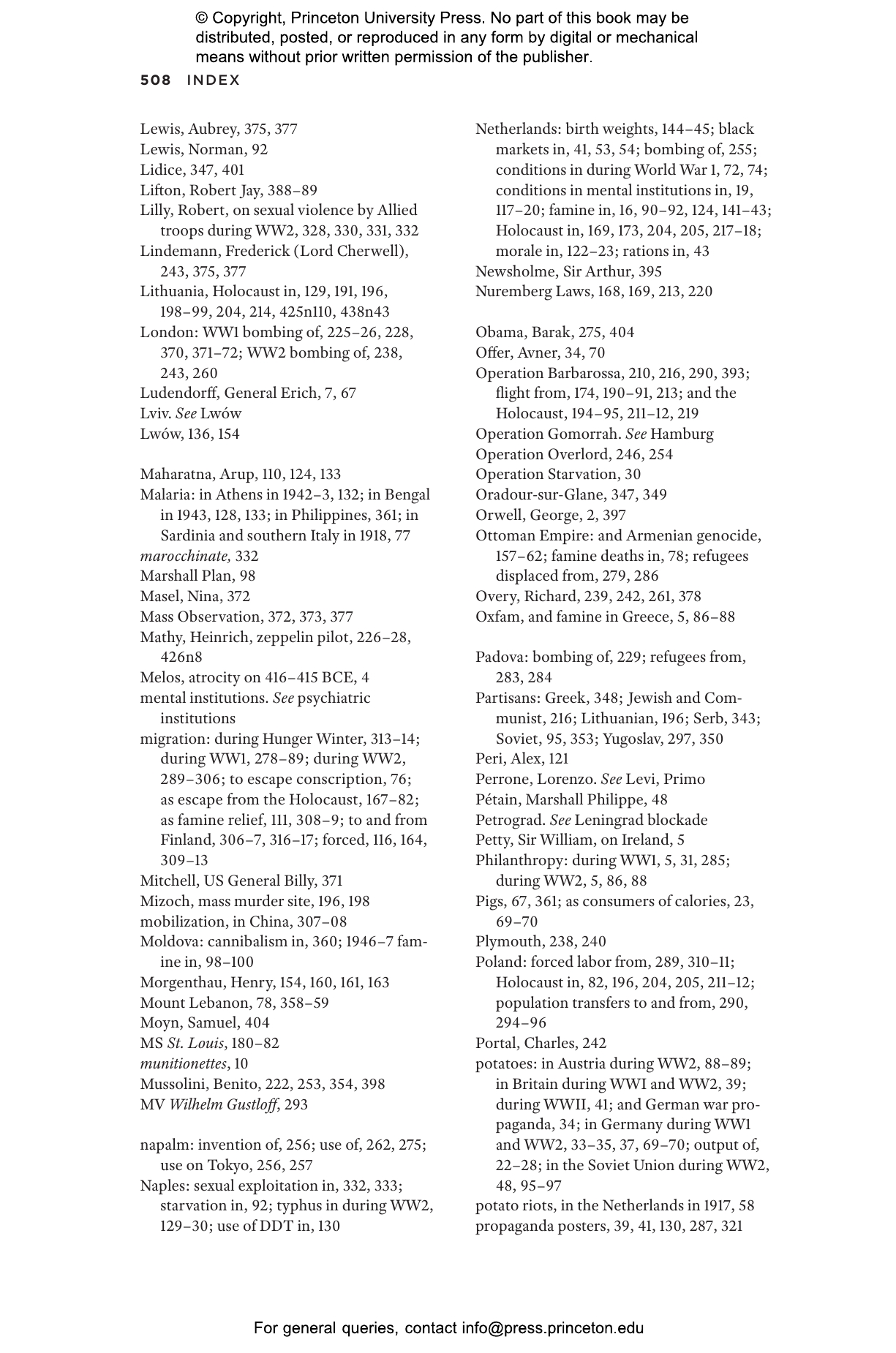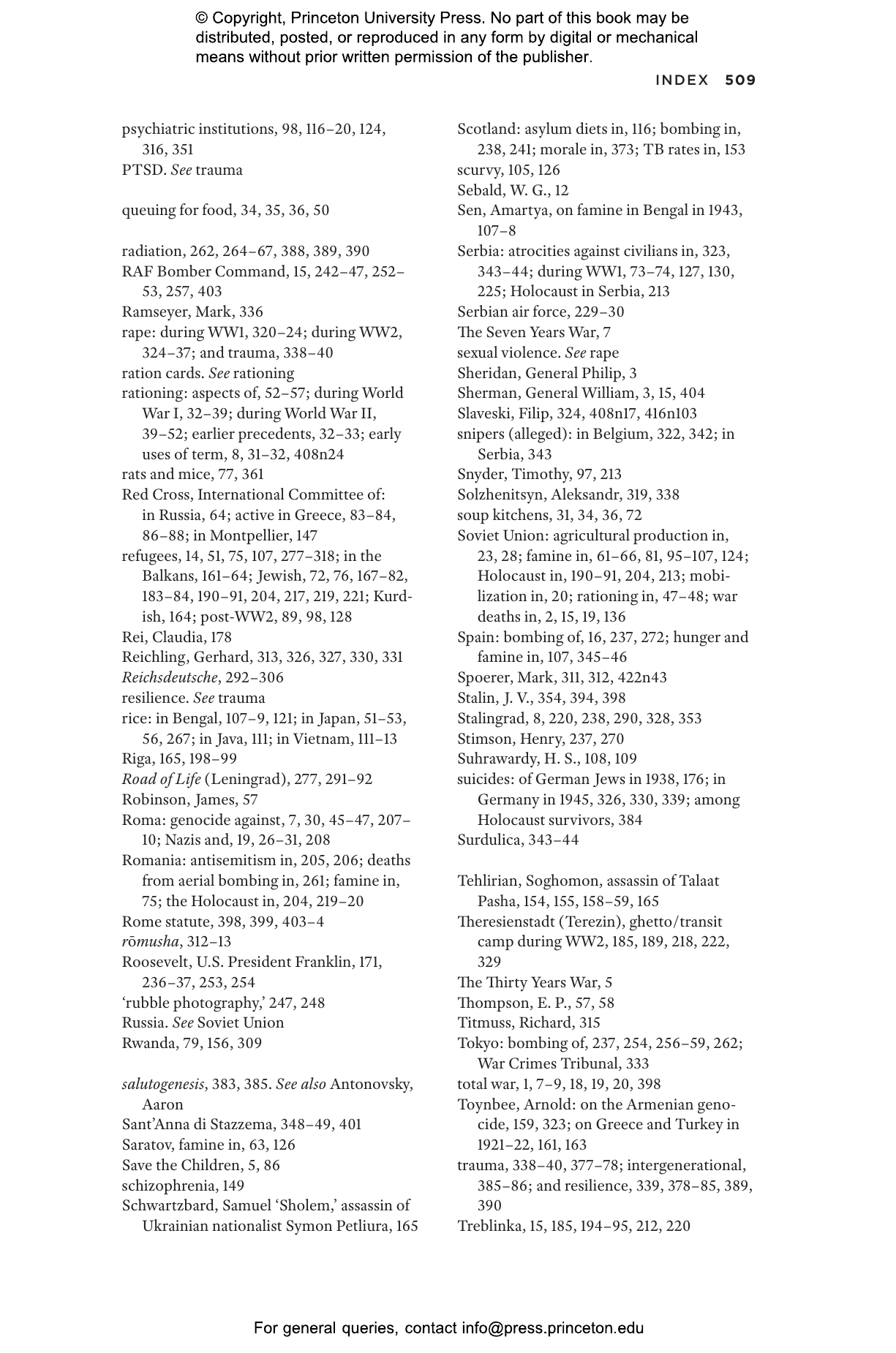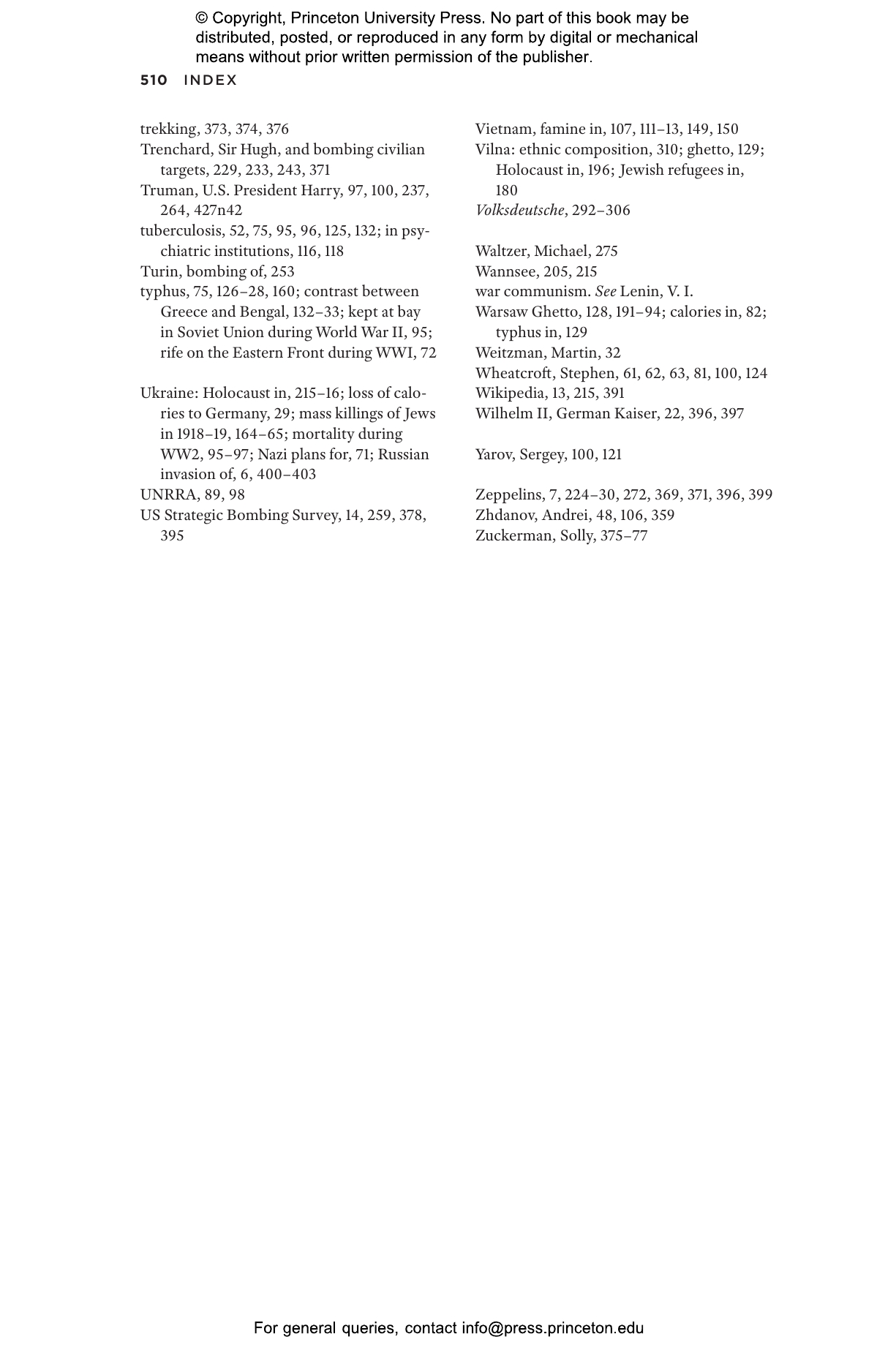Soldiers have never been the only casualties of wars. But the armies that fought World Wars I and II killed far more civilians than soldiers as they countenanced or deliberately inflicted civilian deaths on a mass scale. By one reputable estimate, 9.7 million civilians and 9 million combatants died in World War I, while World War II killed 25.5 million civilians and 15 million combatants. But in The Hidden Victims, Cormac 脫 Gr谩da argues that even these shocking numbers are almost certainly too low. Carefully evaluating all the evidence available, he estimates that the wars cost not 35 million but some 65 million civilian lives鈥攏early two-thirds of the 100 million total killed. Indeed, he shows that war-induced famines alone may have killed 30 million people, making them the single largest cause of death.
The Hidden Victims is the first book to attempt to measure and describe the full scale of civilian deaths during the world wars, from all causes, including genocide, starvation, aerial bombardment, and disease. While nations went to great lengths to record military casualties, they often didn鈥檛 count or deliberately obscured civilian deaths. Getting the numbers right is important. It reveals much about the true human costs of the wars, the nature of modern warfare, and the failure of efforts to stop civilian casualties. It also makes it possible to argue with those who try to deny, minimize, or exaggerate wartime savagery.
Awards and Recognition
- A Marginal Revolution Best Non-Fiction Book of the Year
- An Irish Times Best Book of the Year
Cormac 脫 Gr谩da is an Irish economic historian and professor emeritus at University College Dublin. His many books include Famine: A Short History and Black ’47 and Beyond: The Great Irish Famine in History, Economy, and Memory (both Princeton).
"First-rate. . . . This important book will make my best non-fiction of the year list."鈥擳yler Cowen, Marginal Revolution
"A work of great moral as well as of historical importance. One of Ireland’s greatest historians scrupulously sifts the evidence from the first and second World Wars and their ‘collateral damage’ of genocide, famine, aerial bombing and disease. . . .The resonances for the present are profound: this book is a potent warning against amnesia and evasion."鈥擣intan O鈥橳oole, Irish Times
"A timely publication. . . . 脫 Gr谩da’s formidable talent as an economic historian brings us an extremely valuable and accessible work which is about more than numbers for the sake of numbers."鈥擫aurence Marley, The Irish Times
“Libraries are full of books about wars from the vantage point of famous leaders, but it’s the civilian population that bears the brunt of war. At last, this wonderful and ambitious book tells the story of the civilian victims of the two world wars from their perspective, starting with a careful account of their massive—and often underappreciated—death toll.”—Daron Acemoglu, coauthor of Power and Progress: Our Thousand-Year Struggle Over Technology and Prosperity
“The hidden history of civilian deaths in the two world wars has never been timelier, given the horrifying civilian casualties in Gaza and Ukraine. 脫 Gr谩da does a masterful job of sorting out fact from fiction as he lays out the many ways in which civilians suffer and die during conflicts. A must-read for anyone who cares about the world we live in.”—Sheila Fitzpatrick, author of Lost Souls: Soviet Displaced Persons and the Birth of the Cold War
“This is an impressive, deeply researched book that will long stand as the definitive authority on the number and circumstances of civilian deaths caused by the two world wars.”—Robert J. Gordon, Northwestern University
“Far too many of the civilian victims of hunger, aerial bombing, genocide, and other atrocities in the world wars have been forgotten for too long. The Hidden Victims is an exhaustive account of those tens of millions of civilians who perished—and a terrifying reminder of what war means when fought without restraint.”—Alex de Waal, executive director of the World Peace Foundation
“Getting accurate numbers for civilian casualties during World Wars I and II is vitally important. In their absence, partisan agendas can run amok, denying or exaggerating wartime tolls for political gain. 脫 Gr谩da handles this challenging topic with humanity and grace, providing careful explanations for his many calculations. Truly a defining achievement.”—Mark Dincecco, University of Michigan
